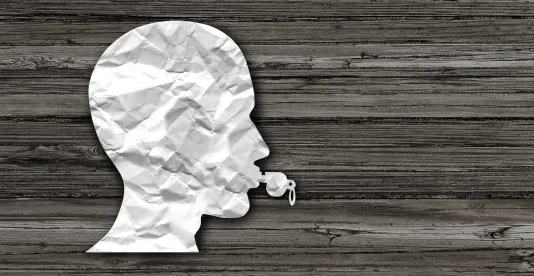In People ex rel. Garcia-Brower v. Kolla’s, Inc., the California Supreme Court resolved a split between the Courts of Appeal for the First and Second Districts over whether a protected “disclosure” under Labor Code section 1102.5(b) includes a report of unlawful activity made to an employer or agency that already knew about the reported unlawful activity. The Supreme Court held that it does.
Background
In June 2014, the Department of Labor Standards Enforcement (DLSE) filed a complaint against Kolla’s Inc., a nightclub in Orange County, California, and its owner. The DLSE alleged that after an employee complained that she was not paid for three shifts, Kolla’s owner fired her and threatened to report her to immigration authorities. Because Kolla’s and its owner refused to accept the DLSE’s proposed remedies, the Labor Commissioner sued them in Superior Court for various Labor Code violations, including retaliation in violation of section 1102.5(b).
Kolla’s and its owner did not appear in the lawsuit. Thus, the trial court entered default judgment against them on most of the Labor Commissioner’s claims. But the trial court held that the Labor Commissioner did not state a claim under Labor Code section 1102.5(b) because the employee reported her complaints to her employer rather than a government agency.
The Labor Commissioner appealed. On appeal, the Court of Appeal affirmed the trial court’s judgment on the section 1102.5(b) claim. But it did so for a different reason. In a 2-1 opinion, the Court of Appeal held a private employee’s report of unlawful activity is not a protected “disclosure” unless the employee reveals new information. According to the Court of Appeal, the employee’s report to Kolla’s owner of wrongdoing was not a protected whistleblowing activity because they already knew about their own wrongdoing.
The Court of Appeal’s decision crystalized a split between the intermediate courts regarding the meaning of “disclose” under section 1102.5(b). In 2012, the Court of Appeal, First District had also held that “disclose” under section 1102.5(b) does not include reports of information already known. But in 2014, the Court of Appeal, Second District held that section 1102.5(b) does not limit disclosures to information that is not yet known. In Kolla’s, the Supreme Court would resolve this split.
California Supreme Court Holding
The Supreme Court reversed the Court of Appeal and held that “disclose,” as used in section 1102.5(b), includes complaints that an employer or government agency already knows about.
To start, the Supreme Court explained that “disclosure” has several plausible meanings. As shown by the split between the Courts of Appeal, “disclose” could mean to bring new information into view or it could mean to bring into view information that the discloser has special access to. The Supreme Court adopted the broader definition of “disclose,” which includes the reporting of unlawful activities to an employer or agency that already knew about the violations.
According to the Supreme Court, the legislative history supported a broad definition. When the Legislature passed section 1102.5(b) in 1984, and amended it in 2003 and 2013, it used the terms “report,” “inform,” and “complain” interchangeably to describe disclosures protected by the statute. Thus, the Supreme Court held that “disclose” was meant to mean “report,” inform,” or “complain,” which the Supreme Court held readily encompasses the employee’s conduct in this case. Furthermore, a bill amending section 1102.5(b) in 2013 stated that California’s public policy was to support workers “be[ing] able to report concerns without fear of retaliation or discrimination.” Moreover, in 2013, the Legislature expanded section 1102.5(b)’s coverage to prohibit retaliation by persons with authority to investigate or correct the violation. Based on this legislative history, the Supreme Court concluded that “disclose” under section 1102.5(b) includes telling an employer information that they already knew about.
The Supreme Court also held a broad definition of section 1102.5(b) supports its purpose of increasing employee protections. An employee may feel more comfortable approaching their employer regarding workplace safety hazards or wage and hour violations knowing a colleague made a similar disclosure. The Supreme Court suggested that an employer may be more likely to fix violations if multiple employees disclose the same wrongdoing. Moreover, an employee without antiretaliation protections may be hesitant to discuss a violation that they know their coworker has already disclosed. Denying protection for employees making secondary disclosures would deny employers and government agencies of corroborating information. Accordingly, the Supreme Court defined “disclose” more broadly to promote section 1102.5(b)’s purpose of enhancing employee protections.
Key Takeaway
With this new clarity, employers should continue to document all concerns raised by employees. The Supreme Court reiterated that an employer can rebut a whistleblower retaliation claim by presenting clear and convincing evidence that a legitimate non-retaliatory interest supported the employer’s decisions. Therefore, an employer can protect themselves by using best practices and documenting all instances of problematic employee behavior and employee complaints. Good documentation will provide contemporaneous evidence of legitimate non-retaliatory reasons for an action if an employer is sued. And, employers with questions concerning an employee’s complaint should consult with legal counsel to ensure an appropriate response.


 />i
/>i
